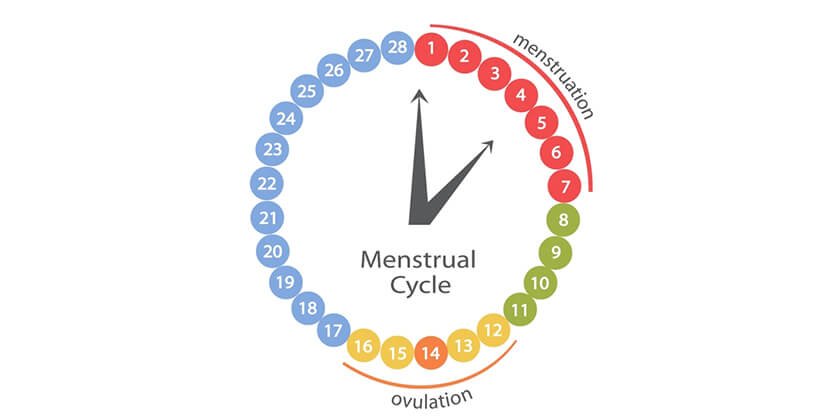
Moringa for Women’s Health: Unlock the Power of Nature’s Superfood
September 28, 2024
How to Choose the Best Natural Bath Salts for Relaxation: A Guide from Aurora
September 28, 2024Are eco-friendly sanitary pads the best choice? A balanced look at performance and sustainability
In recent years, sustainability has become a top concern for many women when choosing products for their daily lives, including menstrual care. The desire to reduce our ecological footprint has fueled the rise of eco-friendly sanitary pads, often made with biodegradable or compostable materials. However, many of these pads come with their own set of challenges, particularly around performance, comfort, and longevity. This raises an important question, Are eco-friendly sanitary pads truly the best option?
At Aurora, we understand this dilemma. Our sanitary napkins, like the Soft Anion Ultra Thin Pads and Bamboo Cotton Sanitary Napkins, are not biodegradable as they contain plastic for enhanced performance and protection. But does this mean they aren't the right choice? In this guide, we’ll explore the pros and cons of eco-friendly pads, the reality behind performance needs, and why striking a balance between sustainability and functionality is crucial for many women.
The growing demand for eco-friendly sanitary pads
Eco-friendly sanitary pads have gained popularity for being better for the environment. Made with materials like organic cotton, bamboo fibers, and plant-based plastic alternatives, they decompose more easily, reducing waste in landfills. Brands marketing these pads position them as the ethical choice, promoting reduced carbon footprints and less environmental harm.
In a world where environmental awareness is growing rapidly, the appeal of these products is clear. Many women feel a sense of responsibility to make eco-conscious choices, from reusable items to biodegradable sanitary products. This trend is reflected across industries, and menstrual care is no exception.
However, the question remains: Can eco-friendly sanitary pads deliver the same level of performance, comfort, and protection that women need during their menstrual cycles?


The reality of eco-friendly pads: Balancing sustainability with performance
While eco-friendly pads undoubtedly help reduce plastic waste, they may not always deliver in terms of performance. Women rely on sanitary products for comfort, protection, and confidence, especially during their periods when leakage, irritation, and discomfort are common concerns. Some eco-friendly pads face challenges in these areas, which can compromise their practicality for daily use.
1. Absorbency and leakage protection
One of the key issues many women face with eco-friendly pads is absorbency. Biodegradable materials, while better for the environment, often struggle to provide the same level of absorbency and leak protection as their plastic-containing counterparts. For women with a heavy flow, this can become a serious concern, leading to discomfort and frequent changes.
At Aurora, our Soft Anion Ultra Thin Pads are designed with an absorbent core and advanced anion chip technology to ensure optimal performance. This means that while they aren’t biodegradable, they provide reliable protection against leaks, helping women feel confident and secure throughout the day.
Why absorbency matters?
2. Durability and wearability
Another aspect where eco-friendly pads may struggle is durability. Pads made from biodegradable materials can sometimes feel bulky or less secure, and they might break down faster under certain conditions. While this can be beneficial for the environment, it might not be practical for women seeking long-lasting protection and discreet wear, especially during work or physical activities.
For example, Aurora’s Bamboo Cotton Sanitary Napkins offer a balance between comfort and durability. While they incorporate bamboo fibers for a softer, more breathable feel, the necessary inclusion of plastic ensures that they maintain their structure and remain secure throughout the day.
Why durability and wearability matter?
The dilemma of plastic: Why it’s sometimes necessary?
While there’s no denying the environmental impact of plastic, it plays a significant role in the performance of sanitary napkins. Plastic layers provide waterproofing and prevent leakage, making them essential for many women who need reliable protection during their periods.
The reality is, fully biodegradable sanitary pads often sacrifice this aspect of protection in favor of sustainability. Aurora recognizes that women need both comfort and functionality, which is why our pads, though not biodegradable, are crafted to offer the highest level of protection. We believe that every woman deserves peace of mind during her period, and for now, plastic remains an important part of that equation.
Aurora’s Bamboo Cotton Sanitary Napkins are a good example of this balance. While the bamboo fibers provide breathability and comfort, the inclusion of a plastic layer ensures that the pad remains leak-proof, offering the security women need on even their heaviest days.
Why plastic still has a role?
What about skin health?
Another factor to consider when choosing between eco-friendly and traditional pads is skin health. Natural materials like organic cotton and bamboo can be gentler on the skin, reducing irritation and rashes that are often caused by synthetic chemicals. However, just because a pad isn’t biodegradable doesn’t mean it’s harmful to your skin.
Aurora’s sanitary napkins are made with breathable materials and are designed to be gentle on sensitive skin. For example, the Soft Anion Ultra Thin Pads incorporate an anion chip, which helps neutralize odors and inhibit bacterial growth, reducing the risk of infections and irritation.
Why skin health matters?
The future of sanitary napkins: Moving towards sustainable solutions
At Aurora, we understand the growing demand for eco-friendly alternatives. While our current sanitary napkins are not fully biodegradable, we’re committed to exploring ways to improve sustainability without compromising on performance, comfort, or protection. The goal is to offer a solution that meets both the practical needs of women and the environmental goals we all share.
For now, it’s important to recognize that while eco-friendly pads have their place, they aren’t always the best option for every woman. Performance, comfort, and protection are critical factors in menstrual care, and choosing a product that makes you feel confident and secure should always be the priority.
Making the right choice for you
When it comes to menstrual care, there is no one-size-fits-all solution. Every woman’s body and lifestyle are different, which means the best sanitary pad for one person may not be the best for another. It’s all about balancing your personal needs—whether that’s performance, comfort, or sustainability.
If you’re someone who prioritizes eco-friendliness above all else, biodegradable sanitary pads may be the right choice for you. But if you value comfort, leak protection, and reliable wear, Aurora’s Soft Anion Ultra Thin Pads and Bamboo Cotton Sanitary Napkins offer a fantastic balance of performance and comfort, while still incorporating natural, skin-friendly materials.
The balance between sustainability and performance
Eco-friendly sanitary pads are an important step forward in reducing waste and protecting the environment, but they’re not without their challenges. For many women, the trade-offs in performance and comfort may not always be worth it. At Aurora, we strive to offer products that meet the needs of women—providing the highest level of comfort, absorbency, and protection, even if that means incorporating plastic into our designs.
While we continue to explore more sustainable solutions for the future, Aurora remains committed to helping women feel confident and comfortable during their menstrual cycles. In the end, the best sanitary pad is the one that works for you, offering the protection, comfort, and reliability you need.




